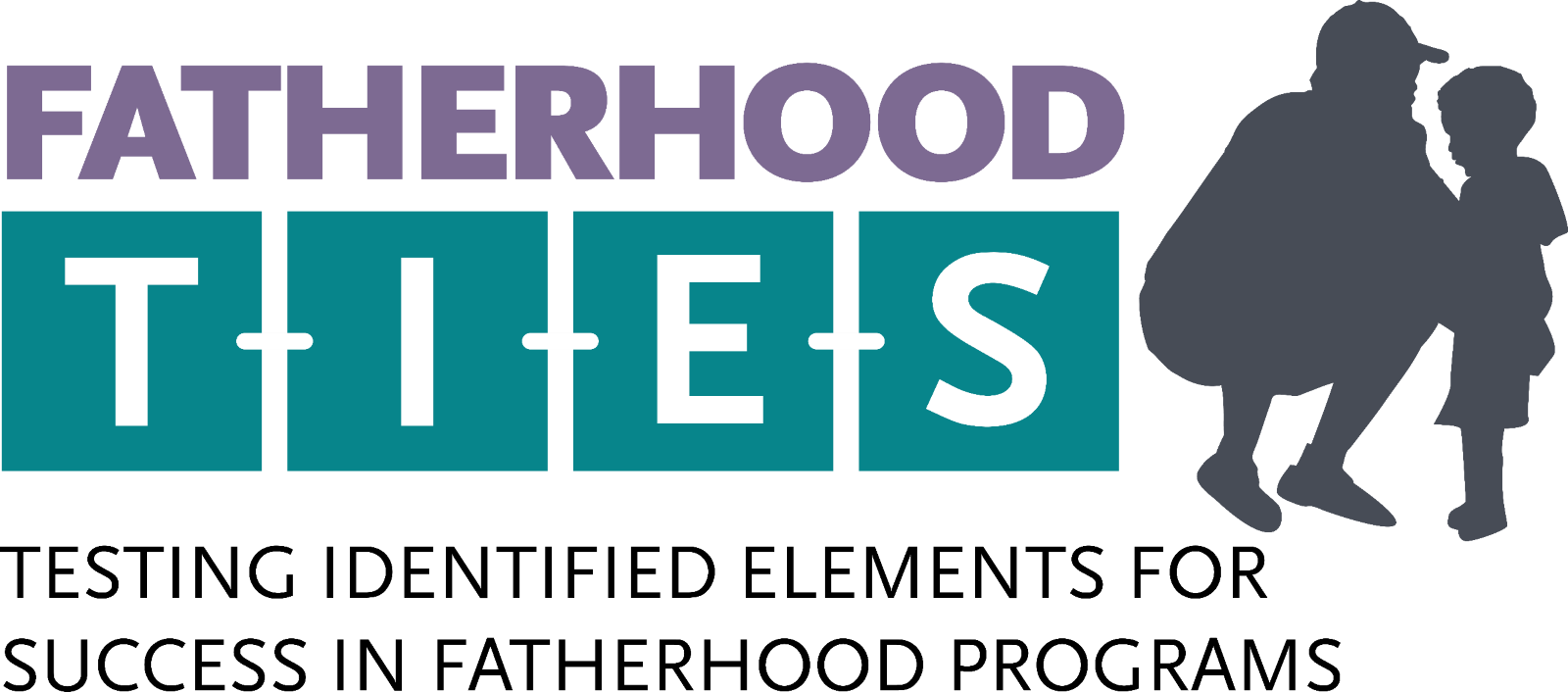Co-Parent Interview (including consent)
Testing Identified Elements for Success in Fatherhood Programs
Instrument 7_TIES_Co-Parent Interview Protocol_Clean
Co-Parent Interview (including consent)
OMB: 0970-0622
O MB
#: 0970-0622
MB
#: 0970-0622
EXPIRATION: XX/XX/XXXX
Agreement to Participate in Co-Parent Interview
Fatherhood TIES
You are invited to take part in an interview to share your thoughts, opinions, and experiences as a co-parent of a father working with [Name of Program]. [Name of Program] is one of five programs involved in the Testing Identified Elements for Success in Fatherhood Programs, or Fatherhood TIES, study. A nonprofit organization called MDRC is running the study with MEF Associates, Mathematica Policy Research, and Abt Associates. This document describes the focus group and what it means for you to be a part of it. Your participation is voluntary.
Why is the study being done?
This study will help us to find out which parts of fatherhood programs are most effective at improving the lives of participating fathers and their children and co-parents to help [Name of the program] to better support fathers achieve their goals. The TIES study is being conducted by MDRC with their partners MEF Associates, Mathematica Policy Research, and Abt Associates.
What does it mean to be interviewed?
You are being asked to participate in this interview, because you are the co-parent of a father who is participating in services at [Name of the program]. The study team wants to hear your thoughts about the [Name of the program] that your co-parent participates in.
This will last about 60 minutes.
You will receive $50 as a “thank you” for participating.
Some questions involve sensitive topics and may be stressful to answer. You do not have to answer any questions that you do not want to answer.
It is your choice to participate. If you decide not to participate, there is no penalty. Your decision will not affect the services you or others receive.
The interview may be recorded. The study team may also take some notes to keep track of what is discussed. The recordings will only be used by the research team; however, any data storage has a small risk of information being seen outside of the study team in the unlikely event of a data breach (such as a breach in the computer security). However, we follow strict rules to protect your data. No reports will include your name or identifying information.
The study team - including the interviewers - will follow strict rules to protect your personal information. The team is trained to protect your information. The team and facilitators signed a pledge.
The information about you will be marked with a special code number, not your name. No reports will describe you in a way that would allow you to be identified.
If you take part using Zoom, you will have the option to share video or keep it off if you wish for your image or background to remain private. Tips on using Zoom are included later in this document.
If you have questions about your rights as someone in this study, MDRC and Fatherhood TIES can be reached at FatherhoodTIES@mdrc.org or at the Fatherhood TIES hotline (855) 907-6696.
Statement of consent to participate in the interview
We will now request your permission to continue. By agreeing to continue, you agree that the purpose of this study, procedures to be followed, risks and benefits have been explained. You have been allowed to ask the questions and your questions have been answered to your satisfaction. You have been told whom to contact if you have additional questions. You agree to participate in this interview. You have been told that you can request a copy of this document.
Do you agree to participate in this interview? Please respond yes or no.
PRIVACY STATEMENT: The consent is covered by the Privacy Act. This means that your participation is voluntary, so you can skip any or all questions. If you decide to skip any or all questions, your access to programming will not change. The purpose of this study is to find out which parts of fatherhood programs are the most effective at improving the lives of participating fathers and their children and co-parents. The information you provide may be shared with state and federal agencies and researchers involved in similar work. The legal authority for this project is Social Security Act Title IV-A § 403 [42 U.S.C. 603] (a) (2). If you would like more information about this project, please see Systems of Records Notice (SORN) 09-80-0361, OPRE Research and Evaluation Project Records.
PAPERWORK REDUCTION ACT OF 1995 (Pub. L. 104-13) STATEMENT OF PUBLIC BURDEN: The purpose of the described information collection is to gather preliminary information about the fatherhood field and explore with fatherhood programs the research questions that are of interest and the design options that are feasible. This is a voluntary collection of information. The answers you give will be kept private. An agency may not conduct or sponsor, and a person is not required to respond to, a collection of information subject to the requirements of the Paperwork Reduction Act of 1995, unless it displays a currently valid OMB control number. The OMB # for the described information collection is 0970-0622 and the expiration date is XX/XX/XXXX. If you have any comments on this collection of information, please contact Dina Israel; Dina.Israel@mdrc.org, and Michelle Manno; Michelle.Manno@mdrc.org ; Attn: OMB-PRA (0970-0622).
ACCESSING VIRTUAL INTERVIEWS
Instructions for turning video on / off on Zoom
Locate camera symbol in the lower left-hand corner of the screen.
To turn on your camera, click this symbol when it says, “start video.”
To turn off your camera, click this symbol when it says, “stop video.” You’ll know your video is off if the button shows a red line through the camera and says “start video” beneath it.
For more help, visit https://support.zoom.us/hc/en-us/articles/201362313-How-Do-I-Test-My-Video-
Instructions for using a virtual background on Zoom:
A virtual background allows you to display a picture or image behind you during a meeting. It’s a way to show your face without showing your surroundings.
These backgrounds can be great, but some people have trouble getting them to work. Some people also report that it can slow down their internet connection and make it harder to see or hear what’s happening in a meeting.
For details steps on setting up a virtual background, visit https://support.zoom.us/hc/en-us/articles/210707503-Virtual-Background
Fatherhood TIES Co-parent Interview Protocol
This interview will cover several topics. We’ll talk about your children and your relationship with your co-parent, what you know and think about the fatherhood program that your co-parent is in, and about in any changes you’ve noticed any changes in their relationship with you or your children because of participating in the program.
As a reminder, all questions are optional. You don’t have to answer any questions that you don’t feel comfortable or want to answer.
Respondent background & Co-parents’ story
First, I’d like to start by learning a little more about you and your children. Can you tell me a bit about your children? Probe: How many do you have? How old are they? Who do they stay with?
Can you tell me about what your relationship with your co-parent is like now? Probe: married, romantically involved/committed relationship, just friends, it’s complicated?
Perceptions of program and fathers’ participation
Because this is a study about fatherhood programs, we’d like to get your thoughts about [name the program]
In your own words, how would you describe [name the program]?
How would you describe the goals of the program?
Why did [Father] decide to join [name the program] with [Organization]?
Are you directly involved in the program in any way? [If Yes, proceed to questions in box below. If No, proceed to question 9]
 Ask
questions in box if respondent answers yes to question 4 above.
Ask
questions in box if respondent answers yes to question 4 above.
Tell me about your involvement in the program, how did you first get involved? Probe: who first contacted them or told them about program; father? Program staff? Etc.
What does your participation in the program look like? What kind of activities do you do?
Do you participate with [Father] as well?
What kind of activities do you and [Father] do together as part of the program?
[If No] Is that something you would find helpful? Why?
Is there anything that makes it challenging to participate in program activities? Probe: transportation, timing of activities, challenges related to Father?
Are there any reasons you are not directly involved in the program?
Do you talk with [Father] about his participation in the program?
How often do those discussions happen between you two?
Have you noticed any successes or challenges that [Father] has related to the program? What are they?
Do you have a sense of whether [Father] enjoys the program or finds it useful? Why or why not?
How do you feel about [Father’s] participation in the program?
Perceptions of fathers’ engagement and relationships with child and co-parent
Because this study is specifically about the effect that [parent coaching/system navigation/financial support and coaching] can have on fathers’ lives, we want to hear about changes you’ve noticed since you co-parent participated in [name the program].
Can you talk about how, if at all, your co-parenting situation has changed since [Father] participated in [name the program]?
What if anything, has stayed the same?
What barriers/challenges, if any, are there to your ability to co-parent with the father?
What supports, if any, do you have in navigating co-parenting with the father?
Are you aware of any barriers that keep your co-parent from being involved in your child(ren’s) lives? If so, what are they?
Do you think the program has helped them work through these barriers? If yes/no, how?
Do you think that [Father] is motivated to actively be in your child[ren’s] lives? What do you think motivates him?
Since participating in the program, have you noticed any changes in the fathers co-parenting skills (trust, patience, communication…)? Can you give an example?
Since participating in the program, have you noticed any changes in the father’s parenting skills (communication, active listening, emotional support, discipline,,,) Can you give an example?
Since participating in the program, have you noticed any changes in the father's involvement with your children? Can you give an example?
Since participating in the program, have you noticed any changes in your children’s well-being? Can you give an example?
Since participating in the program, have you noticed any changes in the father's well-being? Can you give an example?
<#>
| File Type | application/vnd.openxmlformats-officedocument.wordprocessingml.document |
| Author | Rose Palma |
| File Modified | 0000-00-00 |
| File Created | 2024-07-30 |
© 2026 OMB.report | Privacy Policy